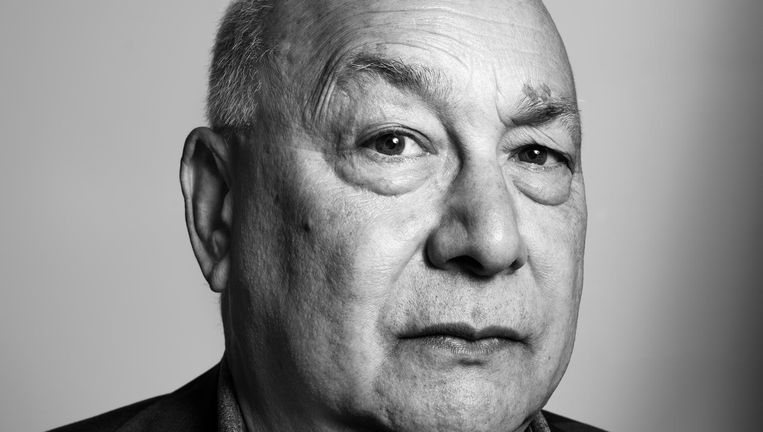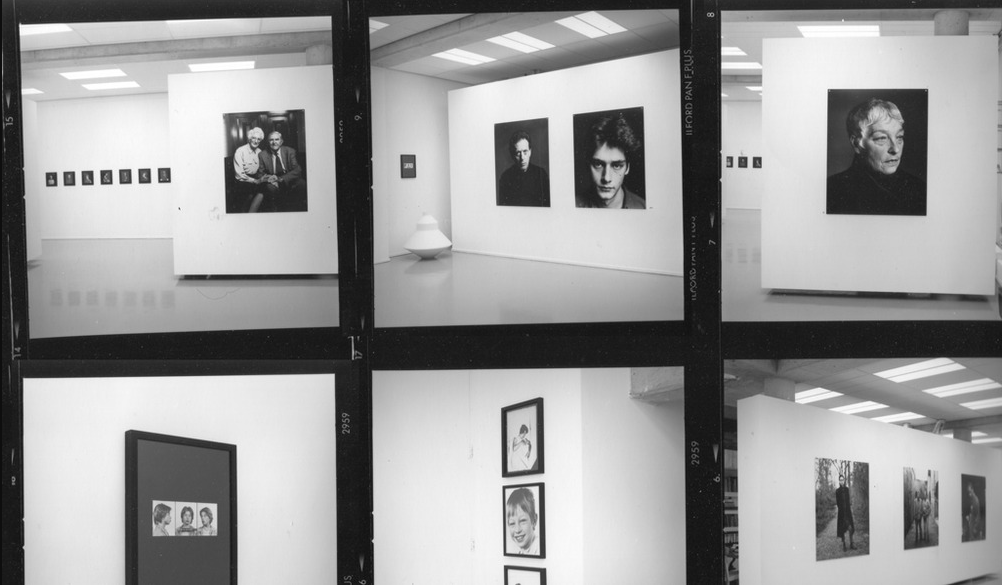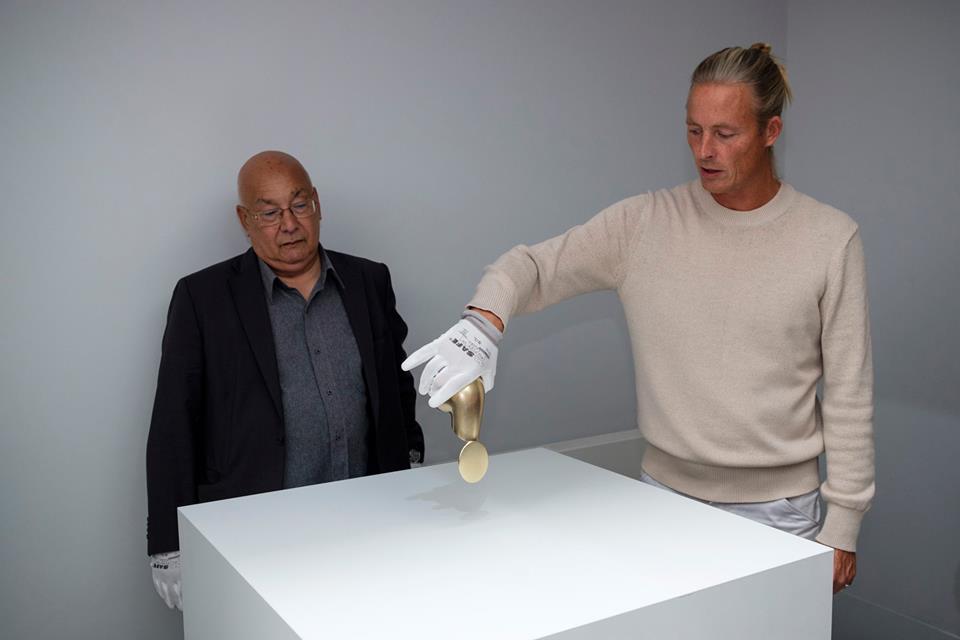The cheery Rob Malasch (72) has lived his life to the fullest and is still doing so. After more than twenty years as a gallery owner (Serieuze Zaken), he is now using all his experience and knowledge as an art advisor.
His beautiful office can be found in a well-hidden courtyard on the Lauriergracht. His whole life Malasch has only done the things he really enjoys: “As long as you use your intuition and the scope of possibilities, you can do anything you like.”
There’s a lot of art in your office. Are any of these works made by you?
No, I’ve been a gallery owner for twenty years, which was very nice, but there comes a time when you’ve done enough exhibitions. Here you can find a part of my collection. Pieces I’ve held to myself over the years. There is this unwritten system in the gallery world: you buy five pieces by a young artist and you sell four of them so you make enough profit to keep one. That doesn’t always work, because sometimes you don’t sell anything. When you’ve had a gallery as long as I have, occasionally some pieces are left over.
How do you know if a young artist will sell?
It’s kind of like roulette, because it’s hard to estimate if an artist will be world famous or not. Back in the days I could’ve bought work by a Chinese artist for prices between $100 and $1.000. Those pieces are now sold at auctions for prices between 5 and 8 million dollars. If I hadn’t sold those then, I would be doing this interview from the Bahamas!

Is speculation an important factor in the art world?
I do think you really need to have love and passion for art. But speculation is definitely an aspect that counts. In some miraculous way, when I started my career, I had a good nose for young talent that would make it to world fame later on. I actually made the most profit on what I didn’t sell. But of course there’s also a lot of art I find interesting that others wouldn’t even want for free.
Maybe that will change after the artist dies?
It might, but I’m not going to wait for that!
You have been a gallery owner for twenty years and now your website states: art advisor. Is that the obvious route to take?
After so many years as a gallery owner you build a reputation in the art world. Collectors came to see me for advice and I liked that part of the job. I always tell them I can’t guarantee anything. But I do have a specific taste that sometimes proved itself to be good taste. Art will still remain an intangible phenomenon. Do you know what Dutch collectors love to tell people?
Well?
“I bought these paintings by Marlene Dumas when she was really young and just left art school. For only thousand guldens. Now they’re worth five million apiece.”

Stories like that will undoubtedly entertain people at a cocktail party.
Indeed, I think it’s typically Dutch to buy something for a song and brag about it. In France, Italy and the U.S. they enjoy telling people: “I bought this painting and it cost 10 million.”
You’re an artist yourself, right?
Actually I didn’t know what I wanted to be when I grew up. I suddenly had to choose between getting a job or getting a higher education. My parents told me to get an education. So I got educated as a school teacher. So there I was twenty years old, in front of the class in the Jordaan. I was educated in this really posh school where the children would actually do as they were told when I said: “Take out your math book.” But in the Jordaan, they didn’t. So on my first day, during lunch time, I went to the hardware store and got myself a giant, wooden hammer. When those children came in screaming again I slammed the hammer on my desk and said calmly: “Well boys and girls, the first one that opens his mouth can put his little finger on the desk.” They never bothered me again, haha!”

But after a year or two I thought: I’m not spending my life raising other peoples children. They can do it themselves. That’s when I got into the art world. During the day I studied modern dance at the theatre school, because I loved dancing and at night I studied to become an art teacher. In those times (early seventies) you’d still get a scholarship for it. When you said you were an artist, you were one.
After that I created theatre shows as an author, choreograph and director and then I suddenly was a foreign correspondent in New York and Los Angeles for newspaper het Parool and HP/DeTijd. Early 2000 I returned to the Netherlands and thought: what on earth should I do now?
Back to the theatre?
I never really knew what I wanted to do, but I did know what I really didn’t want to do. Creating theatre shows is a lot of fun when you’re young, but after ten years I didn’t feel like touring the Netherlands in a Volkswagen van and bringing Shakespeare to Vinkeveen.
So what happened?
A small miracle happened. The house I rented was offered for sale at a bargain price. The owner came to me and asked if I wanted to buy the house and three others buildings on the Lauriergracht. But I didn’t have job and not a penny to spare. So I went to the bank and told a cheeky story about how I started a new business in property development. They thought it was a marvellous project and suddenly I was a well-off man! Those buildings all had wonderful empty spaces of about 200 or 300 square meters. That’s what gave me the idea to start the gallery: Serieuze Zaken (Serious Business). But not too serious of course! And the gallery was a big hit.
When you look at younger generations with your knowledge and experience, what would you advise them?
As far as I can judge it seems everyone slips into a boring adult life way too soon. My generation really rebelled against that. My advice is: just make a total mess of things. That’s a lot more interesting. If you fall on your face, just get up again. That’s no crime at all. And go to Kees de Boekhouder for your administration!
Concluding, what does success mean to you?
Success is something others have to want for you as well. It’s means nothing if you think of yourself as really successful. I don’t think it’s something you should strive for. It’s something you might get awarded with.
Website: robertmalasch.nl
Instagram: robertmalasch


